
As Charles Balguy took his last breaths in 1767, he could barely have conceived that 178 years later his place of birth would sit marooned, isolated and largely forgotten in the dark depths; consumed by water.
Born in the grandeur of Derwent Hall in 1708, Balguy was a physician and translator of some repute and would go on to translate Giovanni Boccaccio’s famed Decameron, a collection of 14th-century novellas by the Italian author. It was considered at the time the best English translation and resulted in numerous reprints. While his work would stand the test of time, his birthplace would not.
As with most Derbyshire villages, Derwent had a proud history. It was a physical place where people stood, where people lived their lives, every nook, and cranny as familiar to locals as our villages are to us now. Indeed, in an age where travel was limited and work aspirations were largely confined to the village and local areas, Derwent was all many residents had ever known.
However, by 1945, as the country began the road to recovery following the end of a long, traumatic war, the village was gone - as if it had never existed.
Residents were relocated and left with memories of a different time, Derwent’s architecture – the quaint gritstone cottages, corner shop, the village church, local school, cobbled streets, and much more either demolished or hidden deep beneath the waters of the newly established Ladybower Reservoir.
This story is from the {{IssueName}} edition of {{MagazineName}}.
Start your 7-day Magzter GOLD free trial to access thousands of curated premium stories, and 9,000+ magazines and newspapers.
Already a subscriber ? Sign In
This story is from the {{IssueName}} edition of {{MagazineName}}.
Start your 7-day Magzter GOLD free trial to access thousands of curated premium stories, and 9,000+ magazines and newspapers.
Already a subscriber? Sign In

Can Plants Hear?
In the latest in his series on the intelligence of plants, Martyn Baguley analyses whether they have the ability to hear
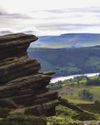
Peak National Park and Ride
Andrew Griffihs asks what the future holds for transport in the Peak National Park and talks to Julian Glover about his Landscapes Review
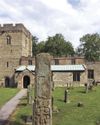
Doubly thankful
Mike Smith explores the village of Bradbourne, which has a particularly poignant tale to tell
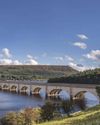
What lies beneath
Exploring the hidden depths of Ladybower Reservoir, which conceals secrets of a fascinating past

Battle for our birds
Paul Hobson analyses our complex relationship with birds of prey and how these fascinating birds are fairing in Derbyshire
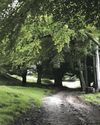
Explore the Peak Forest
A walk through autumn fields and forests with far reaching views enriched by snippets of mystery, romance and the area’s industrial past
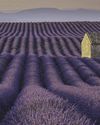
Pictures to transport you
Chesterfield photographer David Keep continues his photographic journey, this time recalling his favourite landscape images from around the world

The magic of Christmas
Ideas for days out, gifts and where to find local produce in Derbyshire this festive season

PENNY for the Guy
We take a look at Derbyshire’s bonfire tradtions through history

From hardship came happiness
Pat Ashworth speaks with Chesterfield based retired Colonel John Doody about his inspiring life, from a diffiult childhood to overcoming diversity and finding happiness